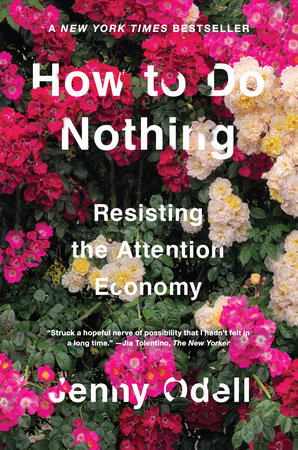
Jenny Odell, How To Do Nothing: Resisting the Attention Economy, 2019
I feel the same way about libraries, another place where you go with the intention of finding information. In the process of writing this book, I realized that the experience of research is exactly the opposite to the way I usually often encounter information online. When you research a subject, you make a series of important decisions, not least what it is you want to research, and you make a commitment to spend time finding information that doesn't immediately present itself. You seek out different sources that you understand may be biased for various reasons. The very structure of the library, which I used in Chapter 2 as an example of a non-commercial and non"productive" space so often under threat of closure, allows for growing and close attention. Nothing could be more different from the news feed, where these aspects of information-- provenance, trustworthiness, or what the hell it's even about-- are neither internally coherent nor subject to my judgment. Instead this information throws itself at me in no particular order, auto-playing videos and grabbing me with headlines. And behind the scenes, it's me who's being researched. [p.175]
COMMENT
This is a beautiful description of library research as a practice of close attention-- the opposite of the endlessly distracting information deluge online. By "non-productive" Odell doesn't mean that library time is worthless, but that library time is not economically optimized for money-making. The book argues that such economically unproductive time is not just a good thing but essential for a good life.


